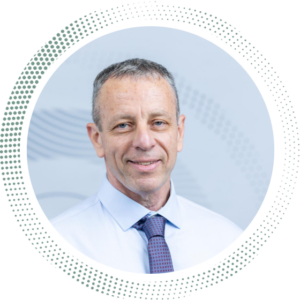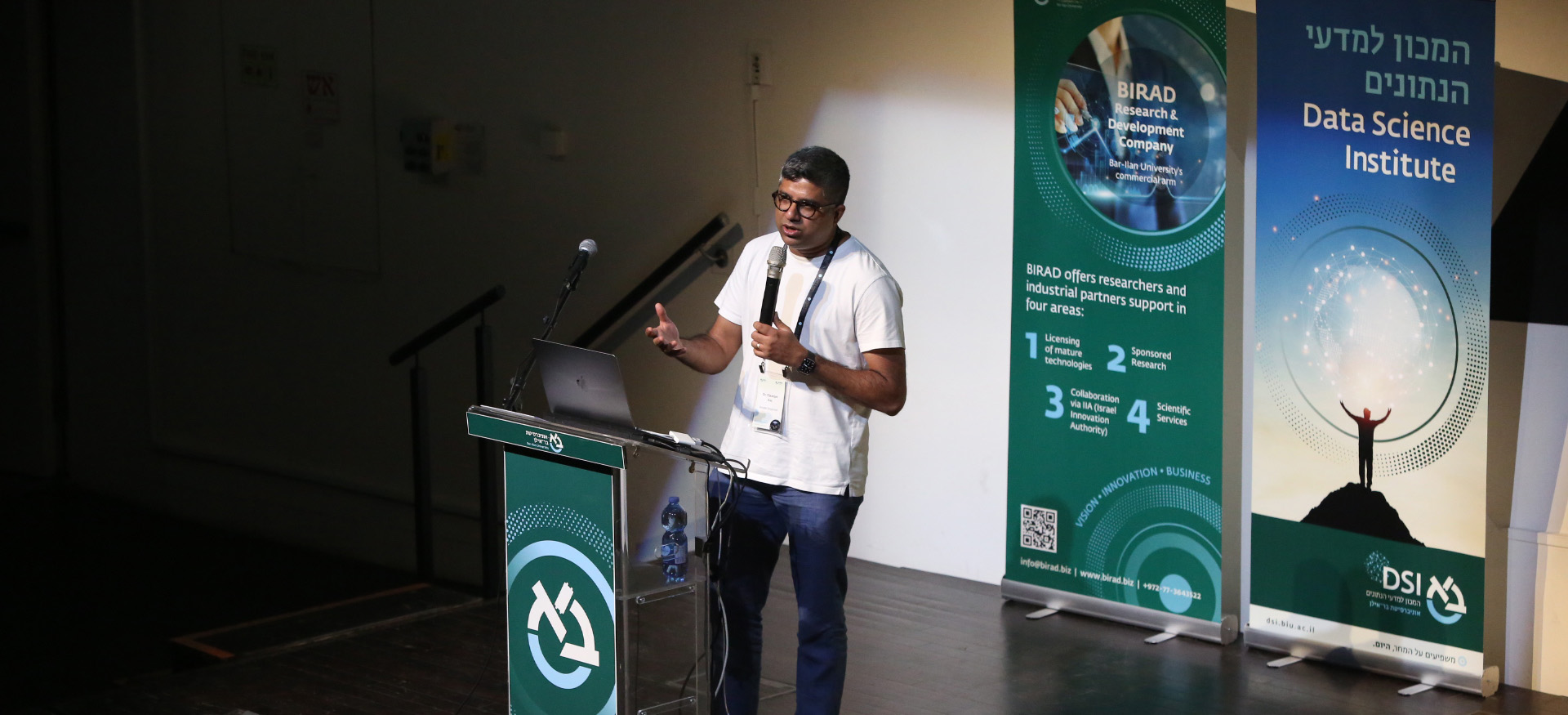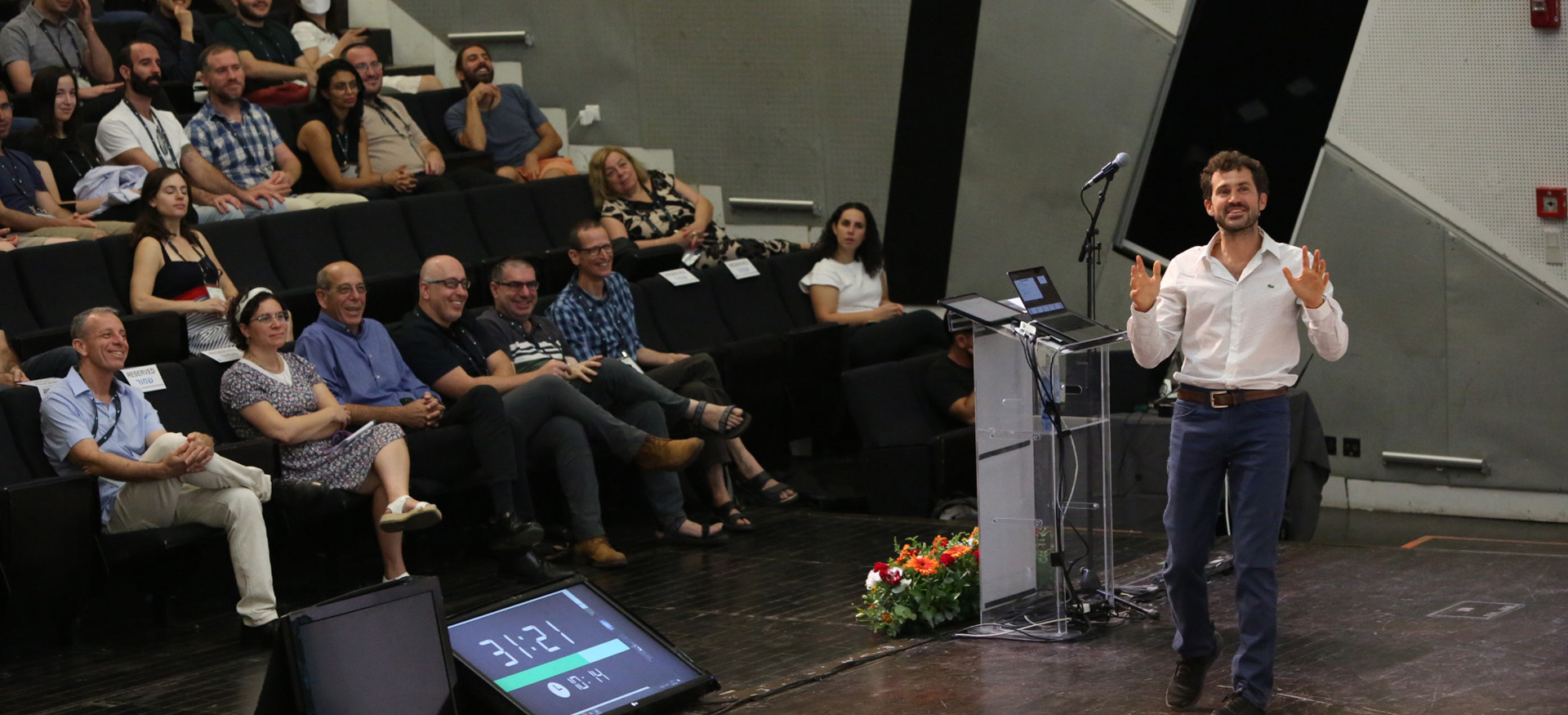The Data Science Institute
Data-Driven Solutions
From finding the last million Holocaust victims to finding the right cancer drug, Bar-Ilan’s world leaders in data science are using AI to ensure a stronger and healthier future—and to preserve our past, as well.
The Missing Million
Calling “every new name we can add to our database a victory” against the Nazis’ attempt to wipe out the Jewish people, Dr. Alexander Avram, director of Yad Vashem’s Hall of Names, once explained the reason for the museum’s tireless efforts to identify all six million Holocaust victims. Since it began the project in 1954, it has managed to identify five million; now, Bar-Ilan data scientist and Director of the Data Science Institute Prof. Onn Shehory believes he can help find part of the missing million before the last survivors die out.
“Today, to verify the unique identity of each victim, people have to manually link evidence from one digitized document to the next,” explains Shehory. By instead applying AI software to the millions of documents in the archives, he hopes to speed up recognition dramatically. “If we can automate the search and the linkage processes, the system can identify connections in moments that might take a person months or years. That is, if he manages to happen upon the connection at all.”
In addition to finding the last million victims, Shehory also wants to help Yad Vashem tell the world who these people were. Explaining that although the memorial wants to provide the public with access to its archives, its databases aren’t compatible with external search engines, Shehory expresses confidence that his AI system can reclassify Yad Vashem’s documents according to key words, concepts, and themes that Google and other engines can understand.
“If I can help save even a few hundred thousand Jews from disappearing forever from history,” concludes Shehory, “I believe it will have been the best possible use of tomorrow’s technology.”

Data-Driven Bridges to Industry: The Interdisciplinary Conference on Networks and NLP
In September, Bar-Ilan’s Data Science Institute hosted academic experts and leading players in industry for an Interdisciplinary Conference on Natural Language Processing (NLP) and Network Science, two fields in which Bar-Ilan is an internationally recognized leader. Indeed, in the field of NLP—led by researchers Profs. Ido Dagan, Yoav Goldberg, and Reut Tsarfaty, and currently home to more than 40 research students—Bar-Ilan is ranked third in Europe on account of its breakthroughs in understanding, summarizing, merging, and now even drawing inferences from English, Hebrew, and Yiddish texts. The University’s network-science research is led by Israel Prize laureate Prof. (emeritus) Shlomo Havlin, a pioneer in the development of network science and one of the two most-cited Israeli scientists.
Along with showcasing academic innovations in these two cutting-edge fields, the conference allowed companies to explain what they need from tomorrow’s NLP and networks professionals. Sponsored in part by Oracle, the world’s third-largest software company, the event’s keynote speakers included Dr. Dipanjan Das, the director of Research Google Deepmind, Prof. Stefano Boccaletti, the senior researcher at the National Research Council’s Institute for Complex Systems in Florence, Italy, and Prof. Cristian Danescu-Niculescu-Mizil of Cornell University.


Power to the People: Network Science and the Electric Company
To ensure that extreme weather incidents or terrorist attacks on infrastructure don’t leave Israeli citizens and institutions without electricity, Bar-Ilan network scientists led by Profs. Baruch Barzel and Reuven Cohen are working with the Israel Electric Company to determine how to add redundant transmission lines to electric grids in the most efficient and cost-effective way.
Killing Machines: Using Machine Learning to Treat Malignant Tumors
By applying his machine-learning technology to hundreds of thousands of cancerous-tumor images, and then matching the tumor trajectory to available drug combinations, bioinformatics researcher Prof. Sol Efroni is helping clinicians determine, at the earliest possible stage, which treatments are most likely to be effective in killing the cancer cells.